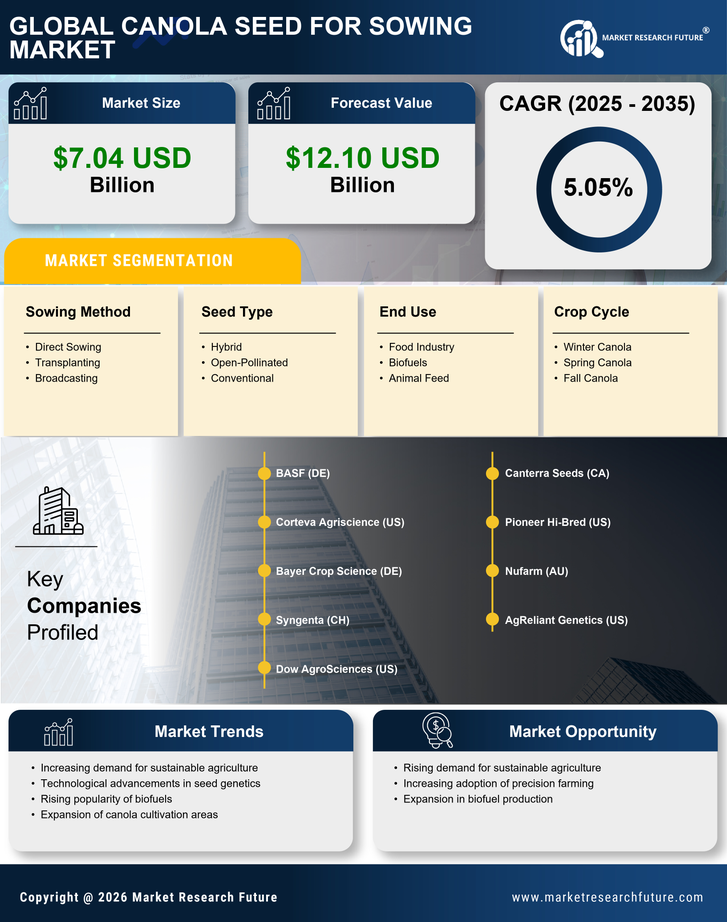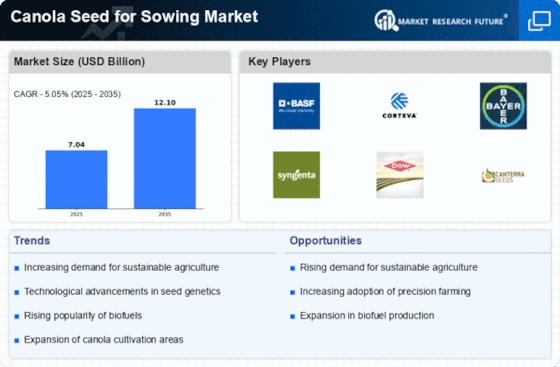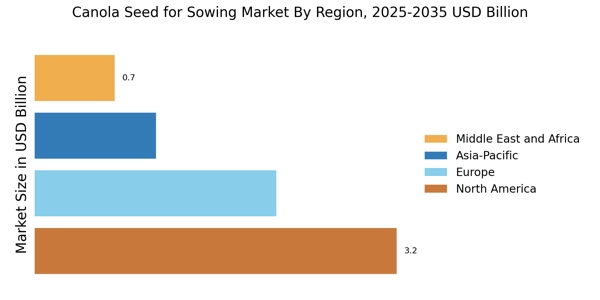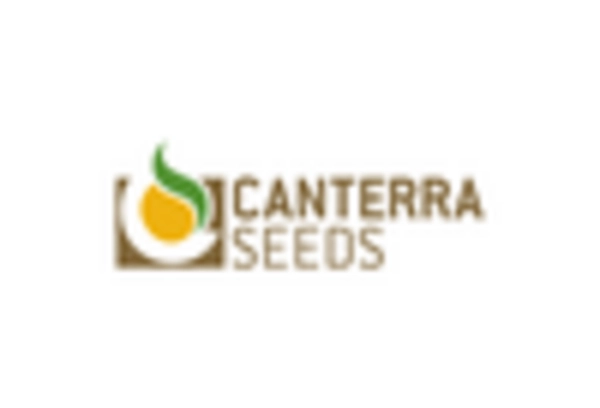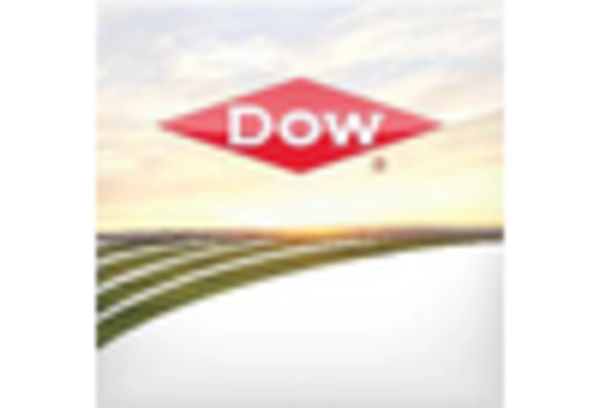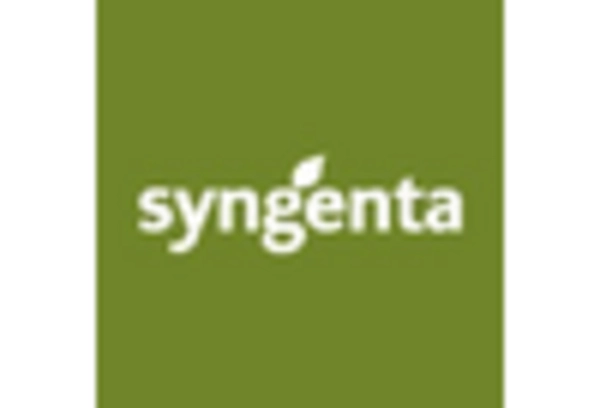Growing Demand for Canola Oil
The growing demand for canola oil is a significant driver for the canola seed for Sowing Market. As consumers become more health-conscious, the preference for oils with favorable nutritional profiles has increased. Canola oil, known for its low saturated fat content and high omega-3 fatty acids, is gaining popularity among health-conscious consumers. In 2023, the global consumption of canola oil rose by approximately 8%, indicating a robust market for canola products. This rising demand is likely to encourage farmers to increase canola cultivation, thereby boosting the Canola Seed for Sowing Market. The correlation between oil demand and seed production is expected to strengthen as more consumers opt for healthier cooking oils.
Government Support and Subsidies
Government support and subsidies play a crucial role in shaping the Canola Seed for Sowing Market. Many governments are implementing policies aimed at promoting canola cultivation due to its economic and environmental benefits. Subsidies for canola seed production and incentives for sustainable farming practices are becoming increasingly common. In 2023, several countries reported a 10% increase in canola acreage due to favorable government policies. This support not only encourages farmers to plant canola but also enhances the overall profitability of the crop. As governments continue to recognize the importance of canola in achieving food security and sustainability goals, the Canola Seed for Sowing Market is likely to experience sustained growth.
Sustainable Agricultural Practices
The increasing emphasis on sustainable agricultural practices appears to be a pivotal driver for the Canola Seed for Sowing Market. Farmers are increasingly adopting methods that minimize environmental impact while maximizing yield. This trend is supported by various government initiatives promoting eco-friendly farming techniques. For instance, the adoption of crop rotation and reduced tillage practices has been shown to enhance soil health and increase canola yields. In 2023, the area under canola cultivation expanded by approximately 5%, reflecting a growing preference for this crop among sustainable farming advocates. As consumers demand more sustainably sourced products, the Canola Seed for Sowing Market is likely to benefit from this shift towards environmentally responsible agriculture.
Technological Advancements in Seed Development
Technological advancements in seed development are transforming the Canola Seed for Sowing Market. Innovations such as genetic modification and precision breeding techniques have led to the creation of canola varieties that are more resilient to pests and diseases. These advancements not only enhance crop yield but also improve oil quality, making canola a more attractive option for farmers. In recent years, the introduction of hybrid canola seeds has resulted in yield increases of up to 20% compared to traditional varieties. This surge in productivity is likely to drive further investment in the Canola Seed for Sowing Market, as farmers seek to leverage these technologies to meet rising global food demands.
Rising Awareness of Biodiversity and Crop Rotation
Rising awareness of biodiversity and the benefits of crop rotation is influencing the Canola Seed for Sowing Market. Farmers are increasingly recognizing the importance of diversifying their crops to improve soil health and reduce pest pressures. Canola, as a rotational crop, offers several advantages, including nitrogen fixation and improved soil structure. In 2023, studies indicated that farms practicing crop rotation with canola experienced yield improvements of up to 15% in subsequent crops. This trend towards biodiversity is likely to encourage more farmers to incorporate canola into their planting schedules, thereby driving demand in the Canola Seed for Sowing Market. The integration of canola into diverse cropping systems is expected to enhance agricultural resilience and sustainability.
